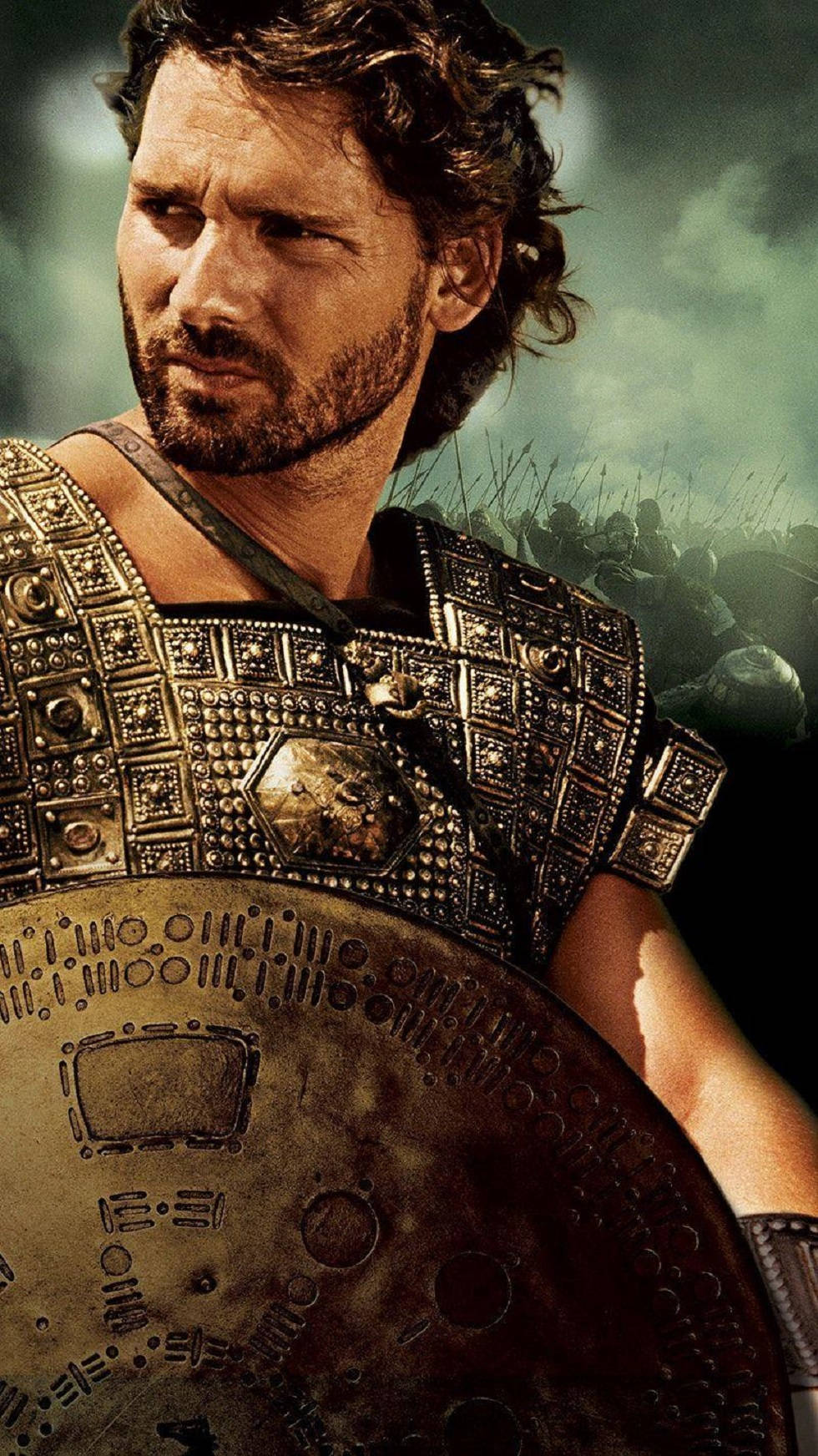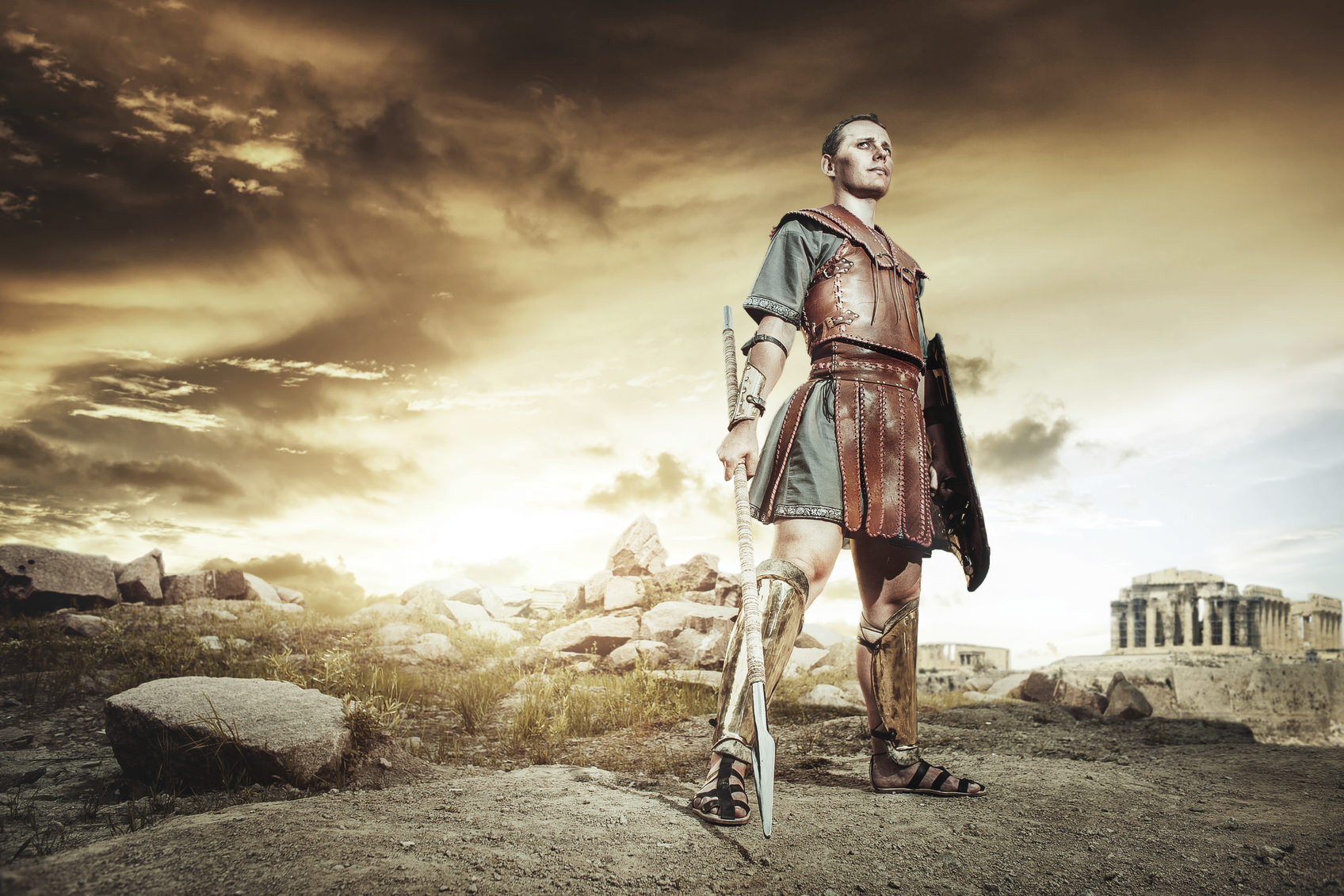When we hear the name Hector, it brings to mind, for many, the image of a truly remarkable figure from ancient tales. The story we have to share today, however, pulls directly from some old writings, painting a picture of a legendary warrior, a prince, and a family man whose actions shaped a very famous conflict. This particular Hector, as described in the pieces of text we're looking at, was a central character in the Trojan War, a conflict that has captivated people for thousands of years. He was, in a way, the shining light of Troy, a city that faced an immense struggle.
Our source material, you see, offers glimpses into the life and final moments of this specific Hector, giving us little snapshots of his courage, his deep love for his family, and the heavy burdens he carried. It talks about his interactions with other well-known figures of that time, like the formidable Ajax and the fierce Achilles, and how these encounters played out in a truly epic fashion. This isn't just about battles, though; it’s also about the deeply personal sacrifices made by those caught in the midst of such a grand and terrible war. It really shows the human side of these larger-than-life characters, too.
From the tender scene of him saying goodbye to his wife, Andromache, to the heartbreaking fright of his little son, Astyanax, as captured in Benjamin West's painting, "Hector Taking Leave of Andromache," this account helps us feel a connection to a person who lived, or so the stories tell us, long, long ago. It paints a picture of a man who was, in some respects, the very soul of his city, fighting to protect everything he held dear. We're going to look closely at these moments, understanding the kind of person this Hector was, and the lasting impact he left behind.
Table of Contents
- Who Was This Hector, Anyway?
- Hector's Personal Story
- What Made Hector a Standout Warrior?
- The Fateful Clash with Patroclus
- Hector's Last Stand - A Difficult Choice
- How Did Hector's Story End?
- What Happened to Hector's Family?
- The Long Road Ahead
Who Was This Hector, Anyway?
The Hector we're talking about, based on the information we have, was a truly central figure in the ancient city of Troy. He wasn't just any soldier; he was, apparently, the eldest son of King Priam and Queen Hecuba, which made him the rightful heir to the throne of Troy. That's a pretty big deal, you know? This meant he carried a lot of weight on his shoulders, not just as a fighter, but as a leader for his people. He was, in fact, the chief commander of the Trojan forces, guiding them through what must have been incredibly tough times. His family life was also a very important part of his identity. He was the husband of Andromache, a woman described as the daughter of King Eetion of Cilician Thebes. Together, they had a young son named Astyanax. This family unit, we see, was a constant source of his motivation and, very sadly, a source of much heartache for those left behind. He was, by all accounts, a great warrior, someone who truly stood out.
He was, it seems, a person of considerable importance, someone whose decisions and actions had wide-ranging effects. His role as a husband and father also gives us a peek into the more intimate side of his life, showing that even in the midst of a massive war, personal connections were what really mattered. The text even mentions how Andromache was a devoted wife and mother, and how she lost both her husband and son in the Trojan conflict. It's a rather tragic detail, highlighting the immense personal cost of such a devastating war. This Hector, you could say, was more than just a fighter; he was a symbol of his city's spirit and its eventual sorrow.
Hector's Personal Story
Here's a quick look at some personal details about this Hector, drawn from the provided text:
| Full Name | Hector |
| Role | Trojan Prince, Heir to the Throne, Chief Commander of Trojan Forces |
| Father | King Priam of Troy |
| Mother | Queen Hecuba of Troy |
| Wife | Andromache (daughter of King Eetion) |
| Son | Astyanax |
| Key Attribute | Great Warrior, Devoted Family Man |
Key Moments in Hector's Story
So, what was it that made this Hector such a remarkable fighter, a true standout in a time filled with powerful individuals? Well, the snippets we have certainly paint a picture of someone incredibly brave and skilled. He led the Trojan forces, which is a huge responsibility, and his presence on the battlefield must have been quite something. We hear about a long fight he had with Ajax, another incredibly strong warrior. This particular struggle between Hector and Ajax was, apparently, quite the spectacle. The text tells us that when the chance came for Ajax to face Hector, the Greeks cheered, and even the Trojans felt a shiver of fear, with Homer suggesting that even Hector's own heart started beating a little faster. This suggests that while Hector was immensely brave, he also felt the weight of these confrontations, just like anyone else would. In that fight, Ajax clearly had an edge, but Hector’s willingness to stand his ground, even against such a formidable opponent, really shows his mettle. He was, you know, someone who never backed down from a challenge, which is a very defining trait for a hero of his caliber.
One of the most pivotal and, frankly, tragic moments in this Hector’s story involves Patroclus, a very close friend of the legendary Achilles. The text states that Hector made a critical mistake: he fought Patroclus. And not just any fight, but one that ended with Hector taking Patroclus's life. What's more, Hector then proceeded to strip the armor from Patroclus's body. This wasn't just any armor, either; it was Achilles' own battle gear, borrowed by Patroclus. After this fierce battle, the Greek soldiers, despite their sorrow and the intense fighting, managed to carry Patroclus's body back to their camp. When Achilles, the mightiest of the Greek warriors, saw his fallen friend, the text tells us he was utterly devastated. This act by Hector, while a victory for Troy at the time, ignited a fury in Achilles that would ultimately seal Hector's own fate. It was, you could say, a moment that changed the course of the entire war, leading to a very intense and personal vendetta. It's almost as if that one action set off a chain reaction of sorrow and vengeance, really.
As the war progressed, the situation for Troy became increasingly desperate. The Trojans found safety behind their city's strong walls, but Hector, in a truly brave yet perhaps misguided act, chose to stay outside, alone, to face Achilles. This was, in a way, a solitary stand against the most fearsome warrior of the opposing side. The text mentions "Hector taking leave of Andromache" and "The fright of Astyanax by Benjamin West (1766), Metropolitan Museum of Art public domain." These references point to a deeply emotional scene, a final goodbye where Hector knew the immense danger he was stepping into. Imagine the fear in a small child like Astyanax, seeing his father prepare for what could easily be his last battle. It’s a very poignant image, suggesting the heavy personal cost of his duty. This decision to remain outside the walls, to face Achilles head-on, was a moment of immense courage, yet it also carried a profound sense of impending doom for Hector. It's a choice that really highlights his character, too, showing his willingness to put his life on the line for his city, even when the odds were stacked against him.
So, how did the tale of this great Trojan warrior, Hector, finally come to its conclusion? As you might expect, given the rage of Achilles after Patroclus's death, the confrontation between the two was inevitable and, ultimately, fatal for Hector. The text doesn't go into the specifics of their final fight, but it does confirm that with Hector dead, a significant turning point in the war had arrived. Following this tragic event, Achilles held a truly lavish funeral for his fallen friend, Patroclus. This wasn't just a simple burial; it was a grand affair, complete with contests worthy of heroes, as described in Book 23 of the Iliad. These contests were, in a way, a final tribute, a way to honor a cherished companion. The narrative then moves to the final book of the Iliad, Book 24, where the Trojan king, Priam, Hector's father, plays a very important role in the aftermath. This sequence of events, from Hector's death to the solemn rituals that followed, marks the close of a major chapter in the Trojan War, signifying the end of Troy's strongest defender. It's a very somber end to a hero's story, really, showing the grim realities of war.
The Aftermath and Those Left Behind
With Hector gone, the fate of his family, particularly his devoted wife Andromache and their young son Astyanax, becomes a very heartbreaking part of the story. The text tells us that Andromache, a truly loving wife and mother, lost both her husband and her son in the Trojan conflict. This is a profound tragedy, illustrating the devastating personal toll of the war on individuals, especially those who were closest to the fallen heroes. Their lives, once intertwined with the powerful Hector, were now completely upended. We get a glimpse into their survival later on, through the journey of Aeneas, another Trojan hero. The text mentions that at a place called Buthrotum, Aeneas and his companions found two other survivors of the sack of Troy: Hector’s widow, Andromache, and a seer named Helenus. This reunion, you know, must have been a moment filled with mixed emotions, a bittersweet reminder of what they had lost and the long road they had traveled. It shows that even after the main battles were over, the personal stories of loss and survival continued, a very human aspect of these ancient tales.
Helenus, the seer they found with Andromache, was, apparently, able to offer Aeneas more than just comfort; he told him more about his destiny. This detail suggests that even amidst the ruins and the profound sorrow, there was still a thread of hope, a sense of purpose for those who remained. The lives of Hector’s family members, particularly Andromache, became a poignant symbol of the enduring pain and displacement caused by the war. Their survival, though marked by immense loss, also represents the continuation of the Trojan lineage and the scattering of its people across the ancient world. It’s a very stark reminder that wars don't just end with the last battle; their effects reverberate through generations, shaping new paths and new destinies for those who live through them. This particular Hector’s story, then, is not just about his life and death, but also about the enduring legacy he left behind through the people he loved, and their own difficult journeys. It really highlights the ripple effect of such a grand conflict.


